Professor Rebecca Olson is a full-time attorney, one of the founding partners of Miller and Olson, LLP, who specializes in political, campaign, election, and nonprofit law. Professor Olson provides legal advice to corporations and trade associations; serves as general counsel and treasurer to many campaign committees for local, state, and federal candidates; handles matters relating to compliance with campaign, lobby, and election laws; and much more. Oh, and she earned her J.D. right here at McGeorge.
Professor Olson previously worked in campaign finance compliance, so she empathizes with those who don’t want a JD but do want a degree that can assist with upward mobility, a better pay grade, increased input and value in the workplace, and other benefits. Though lawyers traditionally tend to believe that students need to go through a J.D. program to really understand the law, professor Olson reassures us that “it couldn’t be farther from the truth. I can tell you the difference between someone who didn’t have the background and someone who had the MSL through the Government Law and Policy program? It would be night and day.”
What is Election Law?
“For many years, Election Law has been a niche practice that people didn’t understand. Now we’ve come much more to the forefront,” Olson says. Much of it comes from constitutional law, talking about political speech, voting rights, and how the First Amendment was born.McGeorge’s Election Law course provides an overview of the subject’s origin and how it trickles down into daily politics. We address redistricting and representation, gerrymandering, election administration, ballot propositions, campaigns, and more.
Professor Olson appreciates the way students get a little taste of the different areas within election law. She reveals that Election Law is not a difficult area of the law to learn, but it is very specific, meaning that professionals without that base of knowledge can feel overwhelmed. Well if you’ve got the base, you may be able to help in a field where election law or a companion subject comes into play. “It helps to have a broad perspective on where everything fits in – and that, I think, can help advance careers in a number of ways.”
Endless Career Possibilities
There are many jobs assisting lawyers and clients where you don’t need a J.D. to be heavily involved and heavily necessary,” Professor Olson explains. An MSL in Government Law and Policy degree is widely useful; you could work, for example, with the Fair Political Practices Commission, which has a whole department dedicated to compliance education for those lobbying or running for political office.
The MSL can also help with drafting statutes and regulations in these areas of election law, as well as understanding what can and cannot be regulated as per the Constitution. If legislative offices have staff with the proper background, they can immediately safeguard against unconstitutional actions and prevent costly mistakes.
Then there are governmental affairs departments serving a myriad of businesses that need to have an active presence at the Capitol. State or local agency jobs have ethics sectors requiring lots of administration; in nonprofits, voter registration or rights are sometimes the whole mission of the foundation; and of course, if you want to work in campaigns, having election law knowledge helps the campaign run smoothly and successfully.

Always In Demand
Election law can prove an extremely interesting subject because it’s constantly evolving with the current legislation. Professor Olson admits she keeps busy, which is a good sign when “it also means that people who have that base of knowledge and understanding are in demand … As we see attacks on administrative officials, people who know the rules will just continue to grow in importance. And it’s important that we have well-trained people who want to do this kind of work.”
Taking the Election Law course or being in the Government Law and Policy MSL program keeps your finger on the pulse. Knowing where the law comes from, what the basis is, how it can change, and how it has changed recently, can make you extremely helpful in any career – and advance your career where you already are as well.
The McGeorge MSL Distinction and Details
McGeorge decided to move the MSL program entirely online prior to COVID, so it’s always been meticulously crafted, highly interactive, and designed with intention. Your degree can be completed in 2 or 3 years, and students often choose to attend part-time; the asynchronous structure allows you to work at a time that’s convenient for you personally. Half of your coursework is a requirement, the other half is left for electives, and the final project is on a current topic of your choice. Need some help? Zoom in for optional office hours. Need to bounce ideas around? A weekly discussion group means there are plenty of opportunities to create a dynamic collegiate conversation.
If you’re interested in learning a little more about the online programs, contact our admissions office today to get started on a personalized trajectory resulting in career growth, lifelong knowledge, and practical skills from McGeorge School of Law. According to professor Olson herself, “You know that it’s high quality and you know that you’re getting a good education.”
